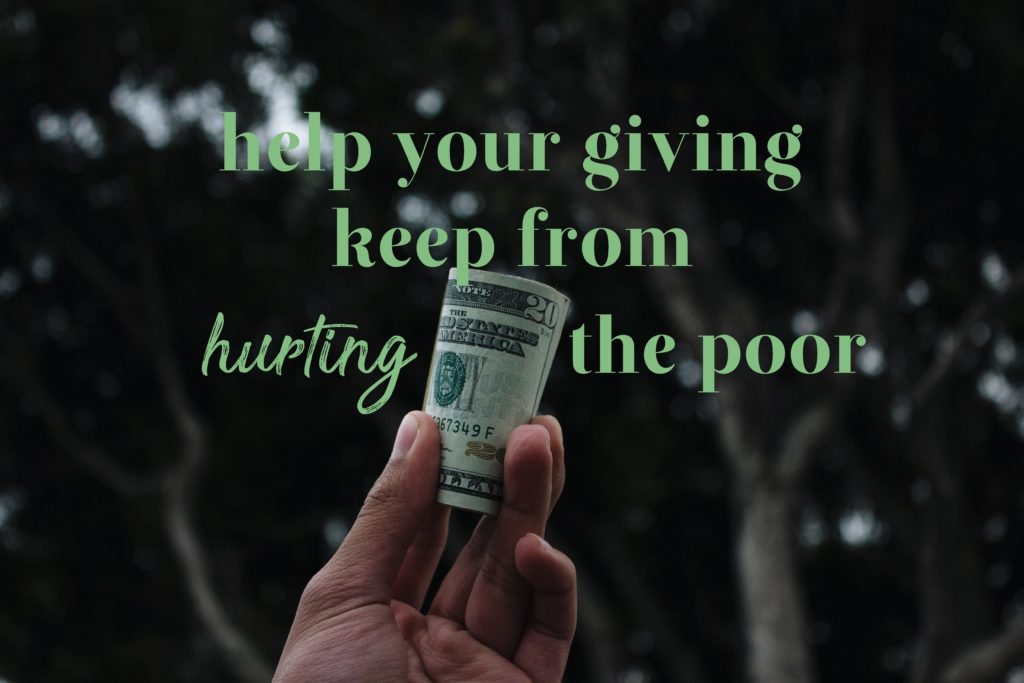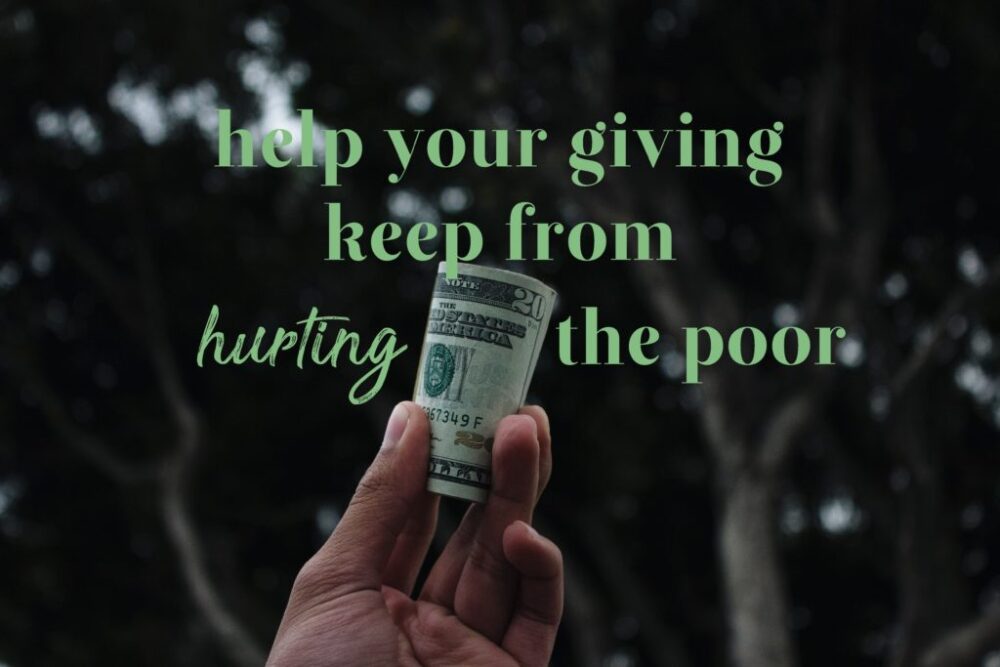
Missed the first post? Grab it here.
4. We are not the heroes. Give to organizations that empower and employ local workers, and who utilize the local economy.
Sending shoes or clothes or food, for example, to impoverished countries—in my experience–can simply be sending in what could be purchased there, without the Western manpower and shipping expenses. (My family and I still load Samaritan’s Purse shoeboxes at Christmastime; those are different to me.) Supporting local farmers and businesses helps those working hard in their own nations.
Organizations with local workers help in the constant interpretation of situations around them, so Westerners don’t make them worse. Employing local workers also tend to encourage Westerners to “work themselves out of a job” a bit. It presents authority figures from a culture’s own people, rather than encouraging a colonialist mentality. And it develops and cultivates vision in national workers who are so much more naturally equipped to help their own people. I love organizations working diligently to “entrust these things to faithful men” (2 Timothy 2:2).
5. And yet–give with mutual accountability.
I personally had no grasp of just how corruption is “in the water” of so many impoverished countries around the world. Years ago I remember hearing in Perspectives on World Missions that corruption is the leading cause of world poverty–and now I believe it. (See this critical article by the Huffington Post.) I now have seen that when a government is corrupt, the entire country witnesses that hard work does not pay; that easy money via deception is the way to go.
I watched an entire inter-country supermarket franchise collapse. I witnessed corruption supersede the compassion and justice of police officers. I was there when adoption advocates recommended less than five orphanages that would not be corrupt in the whole country. I saw corruption suck dry the hospitals and roads and schools that would otherwise empower the poor. I knew of people who died because they could not afford to bribe doctors. And this corruption is present in countless institutions. This is one case where “Christian” does not mean “incorruptible.” Wise organizations instill multi-tiered checks and balances that prevent individuals from facing inappropriate levels of temptation.
When you give to organizations of those you know or who have financial accountability through organizations like ECFA, you’re much less likely to be contributing to the problem.
You might be picking up on the theme I’m implying of humility and dignity in our help, rather than the West as savior. (In the words of David Platt, we are not the rescuers, but the rescued.) Scholar and missionary to the Congo Karen Dawson points out that accountability is mutual. It happens on all sides. I found a great deal of accountability from Africans who were willing to speak up and speak into my life, opening my eyes to ways I wasn’t truly helping. (Africans also exposed my own need and cultural deficiencies. I had so much to learn!)
“The local community should have the choice of their own leaders and objectives,” Dawson writes wisely–and foreigners are “not there to lead, but to help and teach.” We give not paternalistically–from superior to inferior–but as brothers and sisters with much to gain from each other.
6. In light of a holistic definition of poverty, consider giving where people are getting bread in one hand–and the Gospel in the other.
Gandhi famously wrote, “There are people in the world so hungry, that God cannot appear to them except in the form of bread.” In a basic understanding of Maslow’s hierarchy of needs, we know that meeting our most urgently-felt, physical needs frees us to address other needs (like the spiritual). Obviously man does not live by bread alone.
But if you haven’t eaten for days or are struggling not to vomit from cholera residing in your water supply, we do as Jesus did: healing the leper, then healing his soul.
If we give them bread for this life but not for the next, we also fail. We address the whole person, acknowledging that poverty touches every aspect of life.
In all of this, do not forget…
Many of those interested in giving would not support a “welfare” mindset in their own countries. But we can lean toward these tendencies when we give internationally. A friend told me today of an acquaintance who forbade Westerners in her ministry in Uganda to give directly to needy Ugandans: “it fosters that culture of looking for your magical mzungu [foreigner] who will spirit your problems away.”
But what we’re still called to do is to give–and give generously. Elaborately. And sacrificially–not “sacrifices that cost [us] nothing,” as David refused to offer. What not to do: Let your fear of giving “well” or the “right way” interfere with utter generosity. In our state of superabundance, giving paralysis is not the answer! Let’s simply move deeper into giving wisely, full of more “dignity, respect, and mutuality,” as Dawson writes.
Interested in more on this topic? Pick up the books recommended in the first post. But beware: They played a significant role in my husband’s and my life-altering decision to go. As another next step, check out this YouTube series (good for small group discussion, too!) on Helping Without Hurting.
https://www.youtube.com/watch?v=a339VZRE3CM
Like this post? You might like







